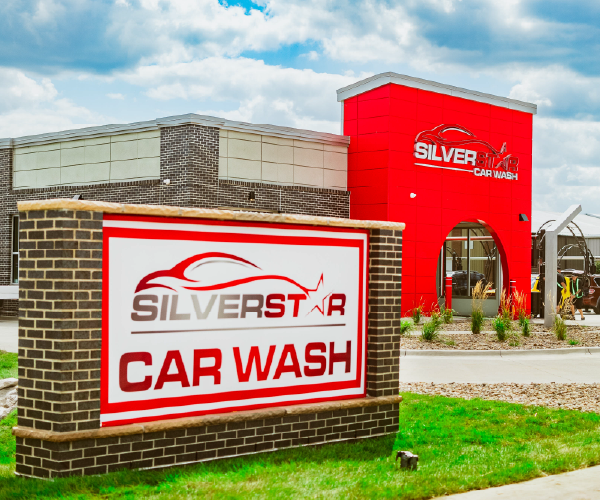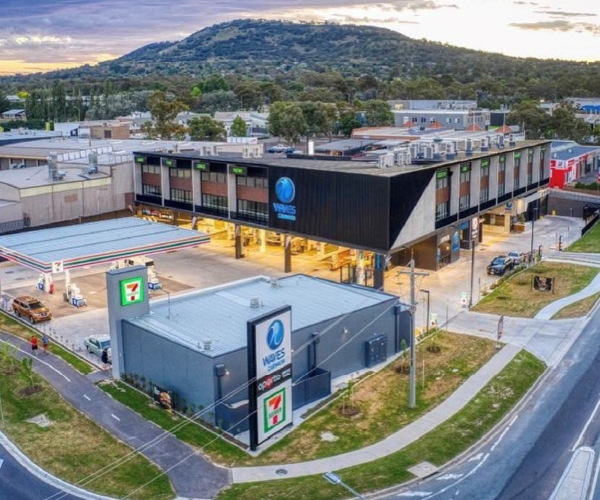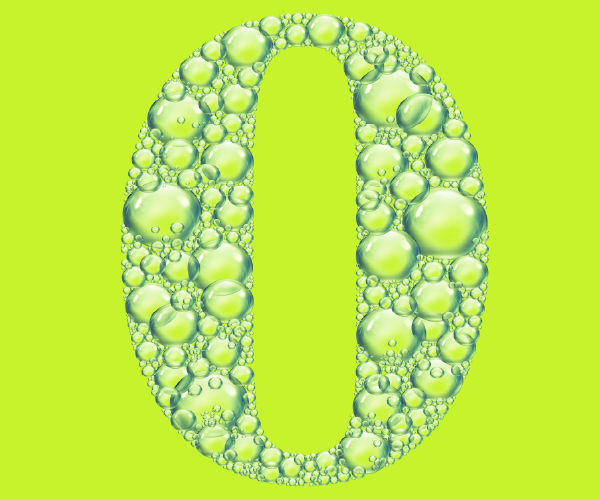
Market Profile: Germany, Connoisseurs of Quality
July 1, 2012
6 minute ReadOver the last half a century, Germany has earned a reputation for belly pleasing foods (bratwurst and beer), first-rate automobiles (Mercedes-Benz, BMW and Volkswagen), and even great moments in history (the fall of the Berlin Wall). But rarely does mention of the country call to mind images of sudsy automatic car washes, the jet sprays drenching vehicles in cleaning solution. Yet, the German car wash tradition has been steadily picking up speed since its birth in Augsburg in 1962. Back then, the car wash was little more than two large brushes that encircled a stationary vehicle during the wash cycle. Today, the country boasts a competitive industry with dozens of specialized car wash systems for customers to choose from, an annual revenue of 1.3 billion euros and more than 18,000 locations — each one working hard to maintain the industry’s well-deserved reputation for excellence.
At first glance, Germany’s car wash industry may seem less impressive than the United States’. After all, some may reason, the U.S. industry brings in $19.6 billion annually and has about 80,500 locations — nearly four times more locations than in Germany. Yet all of Germany’s 18,000 locations are thriving in a region slightly smaller than Montana. Put in this context, it’s easy to see just how robust Germany’s market is. Part of this success can be attributed to the German car wash customer. Thomas Drott, General Counsel for Bundesverband Tankstellen und Gewerbliche, the German Car Wash Association, explains, “The Germans love their cars, and therefore place great emphasis on cleanliness and maintenance.”
According to Drott, while German automobile owners only wash their cars six to nine times per year, the car wash business has continuously increased. “There have been considerable investments in the car wash industry,” said Drott. “These investments not only included new businesses, but also the exchange of machinery and sheds in existing factories.”
One of companies benefitting the most from this exchange of machinery is WashTec, the world’s leading equipment manufacturer with more than 30,000 systems installed across Europe and 12,000 in their headquarters country of Germany alone. Thomas Roth, WashTec’s director of marketing, says that in Germany and other European countries, customers focus on washing and drying performance. “In the United States, customers are more focused on convenience,” he said. Since German customers are so concerned with the quality of the wash, operators may be encouraged to upgrade equipment more frequently, seeking new car wash models designed to deliver the best wash for their customer’s vehicles. As a result, manufacturers are offering car wash owners more equipment options than ever before.
According to Roth, manufacturers of car wash systems have extended their portfolio. “In the past, typically only one model of roll-over system was offered,” he said. “Today there are a wider variety of models offered, similar to car manufacturers who try to serve a wide variety of market segments.”
WashTec offers more than 10 different types of roll-overs — depending on the wash’s location and wash volume. “Everyone gets the perfect machine and the ideal solution for every requirement,” said Roth.
WashTec, a publicly traded company, had total revenue in 2011 of nearly 300 million euro on its mix of equipment, chemical, service and operations businesses. The other leading car wash manufacturers in Germany include Otto Christ AG, with sales of more than 100 million euro per year, and Holz Autowaschtechnik GmbH, with undisclosed revenues.
The focus on diversity and optimization is not the only difference between the German market and the U.S. market. This side of the Atlantic, the car wash market is pretty much evenly distributed between roll-overs, tunnels and self-service car washes. In Germany, 14,000 roll-overs dominate the market, amounting to just under 75 percent of all car washes. Sixty percent of these are owned by large gas companies while the remaining 40 percent are owned by medium or small ones.
Unlike roll-overs, tunnels in Germany are mostly owned by independent operators; however, there are some branch companies, such as the market leader IMO, which owns approximately 380 tunnels. Smaller chains, like Mr. Wash and Clean Car, also impact the market with 30 to 40 tunnels each. Additionally, BP, Conoco, Shell and other large gas companies own a combined 400 or so tunnels.
Keeping Cars and the Environment Clean
There’s another difference between the American and Germany industries. “Looking exactly to the environmental laws, it´s forbidden to wash your car in most towns, which wastes water and contaminates the ground with cleaning supplies,” explains Drott. “But normally nobody controls that, so there are lots of people who wash their cars in the yard.”
Though this law isn’t enforced, its mere presence on the law books spotlights one of the guiding principles of the German market (as well as many other European markets): eco-consciousness. For instance, in Germany, water consumption is regulated in many areas of domestic and commercial life. As part of this, mandatory water recycling has been an accepted fact of life for German operators for years. According to Drott, “The law says you should recycle as much water as possible, which is about 85 percent.”
Companies go to great lengths to demonstrate their eco-awareness.
WashTech’s green development efforts include a new water reclaim system, which saves more than 70 percent of energy costs during filtration. The company has been ISO 14001 certified — an international certification granted to companies with management systems dedicated to environmental awareness — since 2000. The company is also involved in the Umweltpakt Bayern programme, a Bavarian-based program which seeks to enhance self-motivated responsibility to environmental protection among local businesses.
This emphasis on greening isn’t new or uncommon in the German industry. Drott says, “A change in the German market in terms of environmental washing is not expected since we have been using very environmentally friendly products that save water and protect the environment for a long time. This has been the standard at the car wash in Germany for many years now.”
On the Horizon
German customers are constantly on the hunt for the highest quality wash, so the country’s equipment manufacturers work hard to tailor their wash systems to the automobiles on the road. In this way, car wash trends follow automobile trends. This desire from German operators has lead to a greater exchange of information between car manufacturers and the car wash industry in recent years.
For instance, car wash manufacturers have been communicating with automobile manufacturers through the VDA (the Verband der Deutschen Automobilindustrie, or in English, the Association of the German Automobile Industry). In 2009, a committee headed by the VDA laid out a set of guidelines for car washes and wash chemicals. These guidelines were designed to help manufacturers reduce damage that automatic car washes did to vehicles. Originally, the guidelines sought a solution to damage being done to the interiors of convertibles that were not properly sealed. Additional inspiration for the guidelines came from damage done to exterior materials, such as anodized aluminum.
Car washes that comply with the VDA guidelines are awarded the VDA seal, an indication that the operation has the lowest possible risk of damage. Since new paints, technologies and designs are constantly being introduced, the VDA guidelines are in place to make car washing safe and effective despite the-ever changing conditions. (For more on the VDA program, see the fall 2011 edition of CAR WASH Magazine.)
If, in the first 50 years, the German industry went from a fledgling equipment design of two big brushes encircling a stationary vehicle to dozens of car wash models optimized for the array of modern cars, then what will the next 50 years bring? No one knows yet, but, if the past is any indication of the future, we can count on German car wash executives to play a key role in modern car care’s next evolutionary step.







